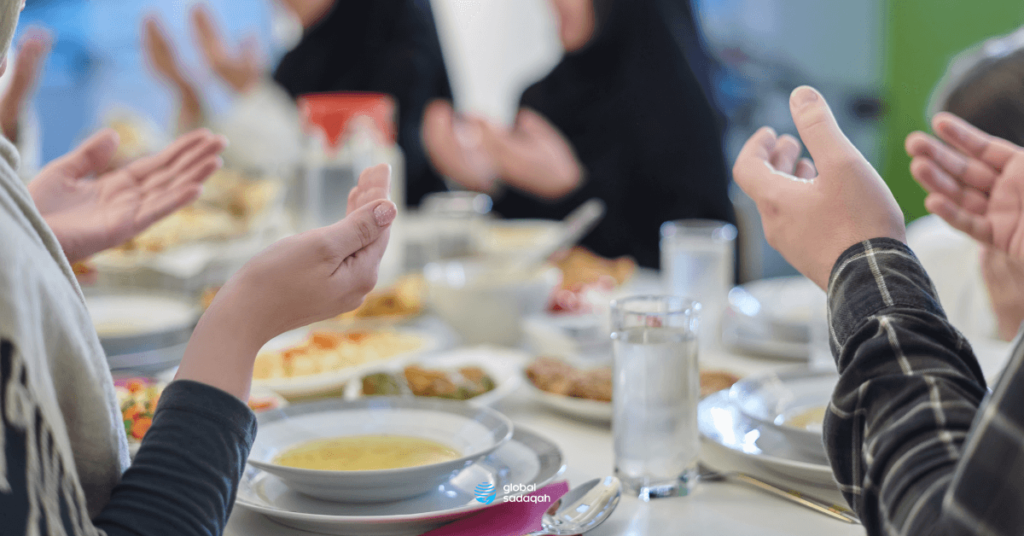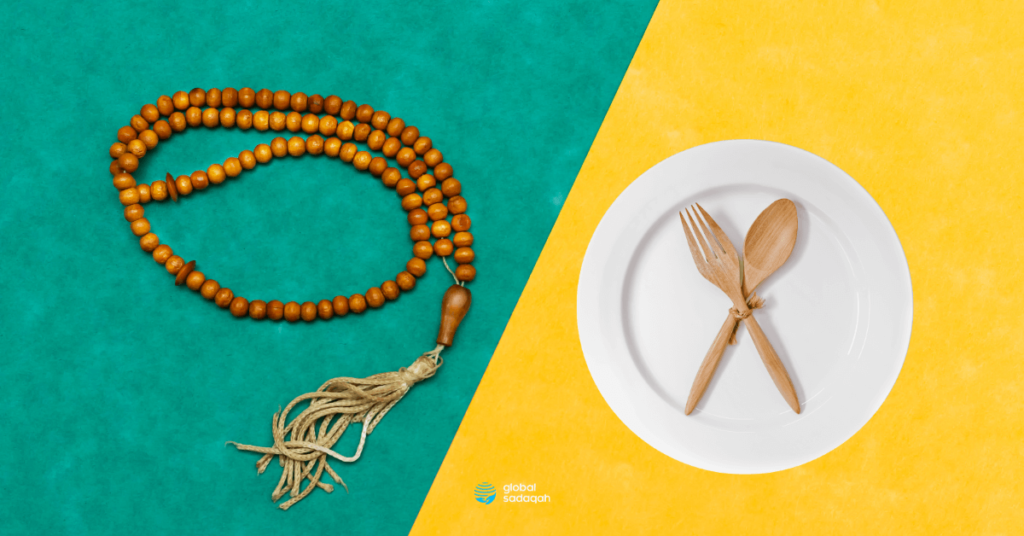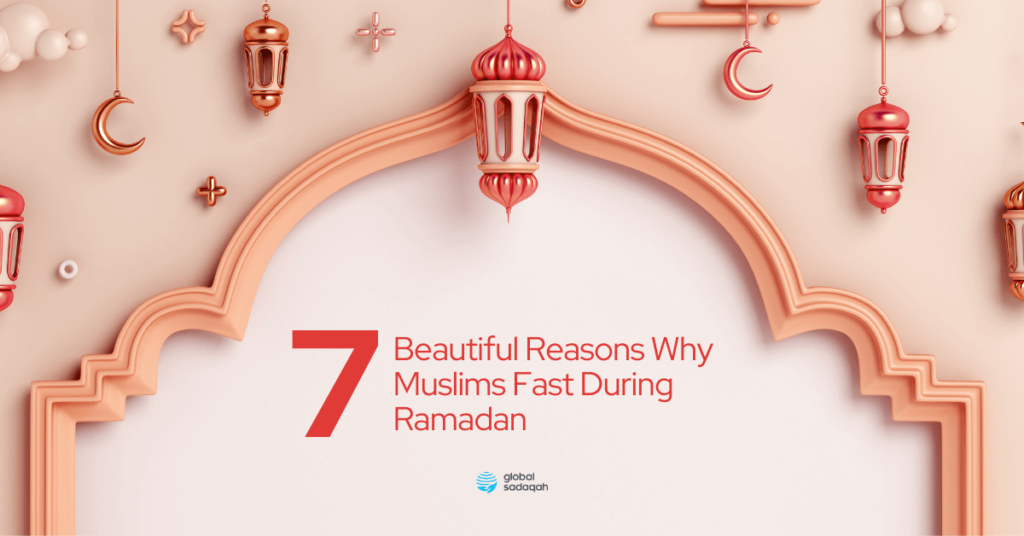For us Muslims, fasting during the month of Ramadan is super special as it’s far more than just abstaining from food and drinks, but carries a deeper spritual meaning behind it.
So, what is Ramadan? Ramadan is the 9th month on the Islamic Lunar Calendar and is the month in which the Holy Quran was sent down as a guide for mankind through Prophet Muhammad (ﷺ). The Lailatul Qadr or known as the “Night of Power” is also celebrated during the month of Ramadan!
Related: Laylatul Qadr: A Night Better Than a 1,000 months
Now, let us share the seven beautiful reasons why we fast during Ramadan:
1) Fourth pillar of Islam
Islam is divided into five pillars that are mandatory acts of worship for every Muslim. The first pillar is the ‘shahadah’, the statement every Muslim should profess, “There is diety worthy of worship but Allah and Muhammad is the Messenger of Allah”. The second pillar is the five daily obligatory prayers. The third is the act of charity via Zakat. The fourth pillar is fasting in the month of Ramadan. The fifth and final pillar of Islam is the holy pilgrimage to Makkah.
Related : Long-Term Social Implications of the Zakat System
2) To learn the beauty of restraint

How many of us have ever felt that we lacked will-power or self-discipline to achieve our goals? Worry not as the feeling is universal. We all at some point will feel this way.
“[Fasting for] a limited number of days. So whoever among you is ill or on a journey [during them] – then an equal number of days [are to be made up]. And upon those who are able [to fast, but with hardship] – a ransom [as substitute] of feeding a poor person [each day]. And whoever volunteers excess – it is better for him. But to fast is best for you, if you only knew. [Surah Al-Baqarah, 184]
Interestingly, one way to interpret the above mentioned verse is to understand that the lesson to be learned during Ramadan is ‘restraint’. Fasting tames the desires. The constant exercise of willpower not to eat, drink or have sexual relations sends a strong message it is the human will, hence the spirit, that is in control.
3) Learn to be grateful
The month of Ramadan is also where Muslims give thanks through prayer for whatever they have achieved and received throughout the year—whether it meant getting As in a recent major exam or getting a promotion in the workplace. Or simply just giving thanks for a wonderful, amazing life and the chance to breathe in fresh air!
4) Focus and resisting temptations

In today’s modern society, Muslims living as a minority in several countries may have to go through a rather common struggle, temptations. Focus then comes into play to stray away from these unavoidable distractions and temptations. Reading the Quran and performing acts of worship during fasting would allow us to focus on our fast and shun away the temptations.
5) Learn to empathise
As Muslims perform their fast during Ramadan, they must spare a thought or two for those who don’t enjoy the same privilege.There are Muslims who are unable to fast due to sickness or old age and for those who are able, they might not be able to afford a decent meal to break their fast. As Muslims, we’re advised to help those in need and those who are less fortunate, even more so during the month of Ramadan.
6) Detox your bad habits

Detox during Ramadan is to abstain from bad habits which may harm a Muslim spiritually and literally. Here’s an example, Muslim smokers must abstain from smoking during their fast, which may be a starting point for them to kick their habit and carry on beyond Ramadan. Detox here means that we get rid of bad habits, not just body detoxification.
7) Health benefits
Fitness enthusiasts would agree that fasting is beneficial for the digestive system and aids in muscle recovery and body purification, ridding the body of toxins. This is the case, of course, if we don’t overeat during sahur and iftar.
It’s been a tradition for all Muslims, since the days of the Prophet Muhammad(ﷺ), to consume dates and milk, especially during the sahur. Dates provide sufficient energy for a long day ahead, especially for an active fasting Muslim.
Related: Physical Health Benefits of Fasting in Ramadan
In a further positive note, provide an opportunity for Muslims to bring themselves closer to the religion, closer to Allah. Kicking bad habits, avoiding impermissible activities (in the eyes of the religion) and turning over a new leaf InshaAllah ❤️ So So there you have it, five reasons to fast during the month of Ramadan. Oh wait, did we mention there’s a celebration at the end? Ramadan ends with a day known as Eid-ul-Fitr, where Muslims congregate to pray while being thankful for God’s blessings and for having experienced the holy month of Ramadan.
In short, Ramadan is a blessed period for Muslims all around the world; one that they anxiously look forward to and are sad to see go. May we have a blessed Ramadan, InshaAllah.
Related: How do Muslims around the World Celebrate Eid

